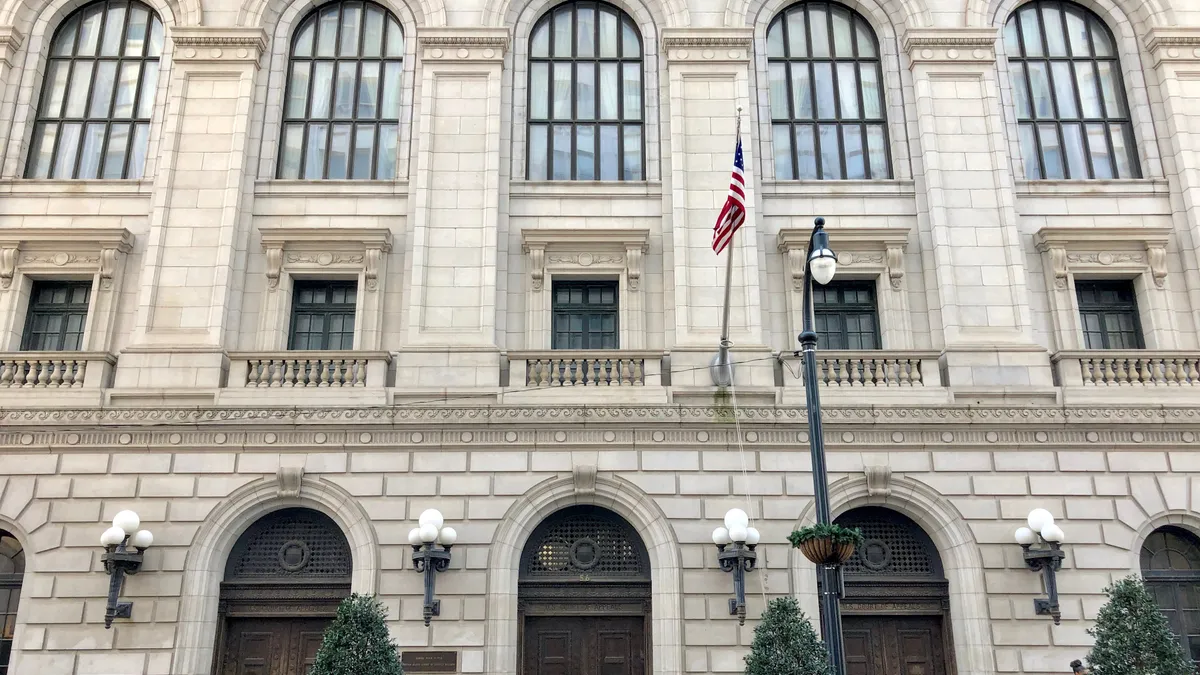Dive Brief:
- Houston County, Georgia, violated Title VII of the Civil Rights Act by maintaining an exclusion within its employee health plan that denied coverage of gender-affirming care for a Houston County Sheriff’s Office employee on the basis of her transgender status, the 11th U.S. Circuit Court of Appeals held May 13.
- The plaintiff, a transgender woman, sought coverage of a surgery recommended by her healthcare providers to treat gender dysphoria. Anthem Blue Cross Blue Shield, which administered the health plan, denied her claim because of the plan’s policy excluding coverage of drugs for gender-affirming surgery as well as services and supplies for gender-affirming surgery or the reversal of such a surgery.
- The employee sought relief under Title VII as well as the Americans with Disabilities Act. The U.S. District Court for the Middle District of Georgia granted summary judgment in favor of the plaintiff and permanently enjoined the county from further enforcement or application of the care exclusion. The 11th Circuit upheld on appeal.
Dive Insight:
In its decision for the plaintiff in Lange v. Houston County, Ga., the 11th Circuit applied the U.S. Supreme Court’s landmark 2020 Bostock v. Clayton County, Ga., decision, which held that Title VII prohibits employment discrimination on the basis of sexual orientation or gender identity. The 11th Circuit found that there was no genuine dispute of fact or law that Houston County’s health plan coverage exclusion discriminated against people who are transgender.
“Health Plan participants who are transgender are the only participants who would seek gender-affirming surgery,” the court said. “Because transgender persons are the only plan participants who qualify for gender-affirming surgery, the plan denies health care coverage based on transgender status.”
The case is one of several to further define post-Bostock LGBTQ+ discrimination case law in the U.S. The 11th Circuit recently served as the venue for another such case when it permitted a transgender man who worked at a Georgia state prison to proceed with his hostile work environment claim. The plaintiff in the case, Copeland v. Georgia Dept. of Corrections, alleged that co-workers misgendered, taunted and made threats against him.
Similarly, the U.S. Equal Employment Opportunity Commission sued one Illinois company in March, alleging that a co-owner deadnamed and made other derogatory comments about a transgender employee. The case was referred to mediation by the U.S. District Court for the Southern District of Illinois in April.
Still, the protections outlined in Bostock may have some limitations, particularly for situations in which an employer’s sincerely held religious beliefs are concerned. A North Dakota federal district court ruled against EEOC in March when it held that members of a Christian employer coalition could not be compelled by federal agencies to pay for or provide gender transition services.













